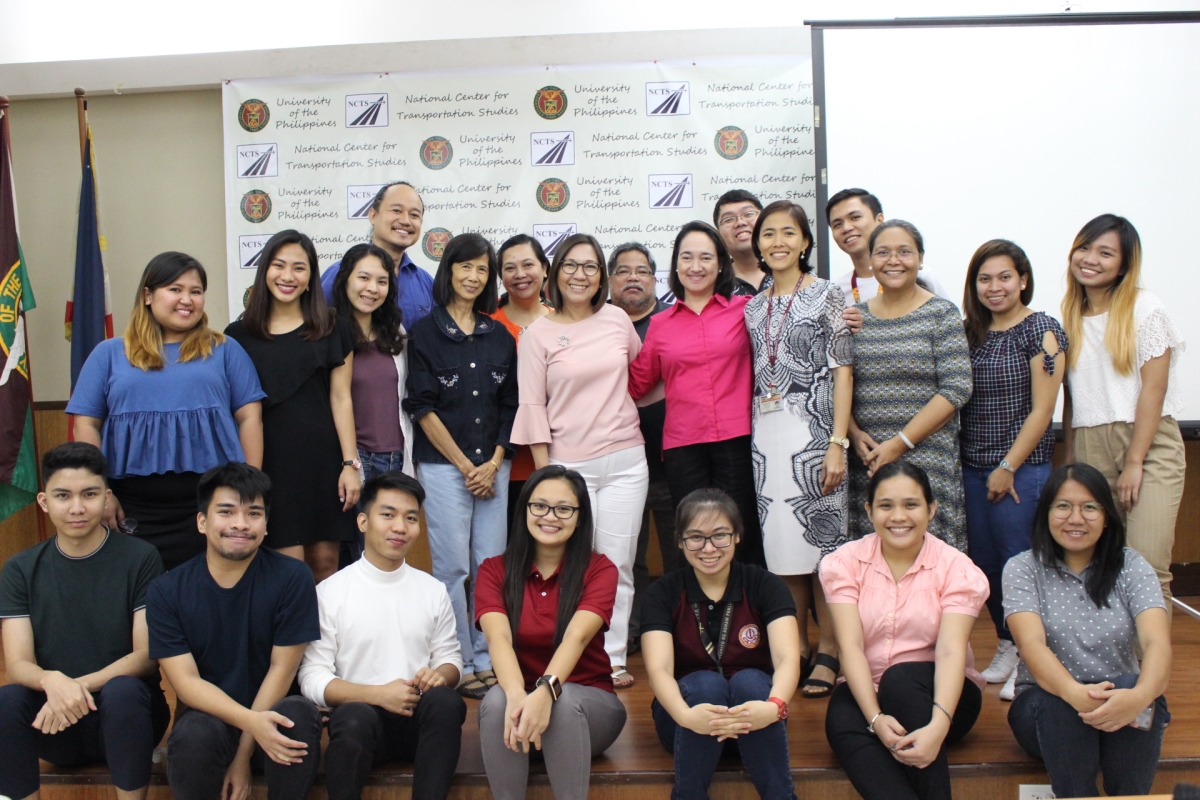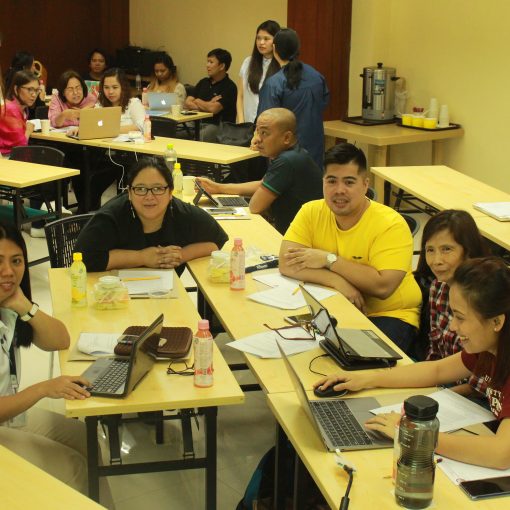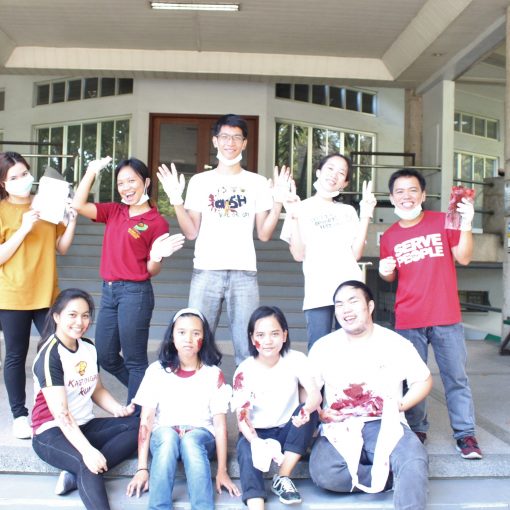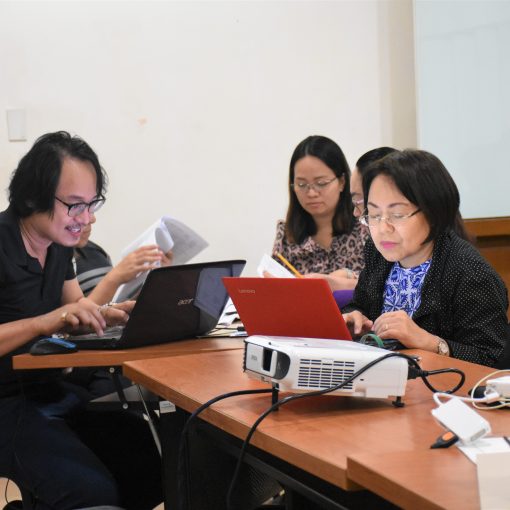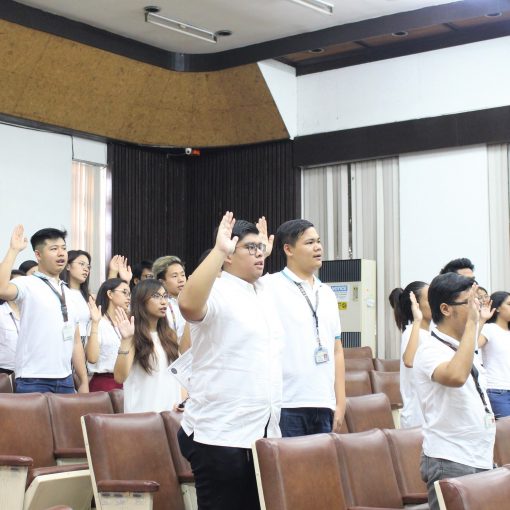The NSTP Diliman Office conducted a follow-up Writeshop on OBEdization of Common Module Topics Syllabi last December 9, 2019, in Toyota Training Room, National Center for Transportation Studies, UP Diliman. The writeshop was a continuation of the October 9, 2019 workshop on the academic improvement of the NSTP Common Module. Attended by NSTP implementers from different colleges within UPD, the workshop was headed by Dir. Arlyn Macapinlac of the NSTP Diliman Office and Dir. Rosella Torrecampo of the Office for the Advancement of Teaching (OAT). Changing, refining, and polishing the drafted common modules were primary goals of the workshop.
Dr. Torrecampo headed the discussion and reminded the participants of the value of having assessment activities as these are integral in the creation of discussion-oriented modules. Through her inputs during the group consultations, the participants were able to provide activity choices that may be used by the instructors as supplementary learning opportunities. Participants for the Module 1 NSTP Tatak UPD Orientation were given the tasks to adjust the drafts from the previous workshop in Hive Hotel to satisfy the requirements of the refined matrix. The group deemed it more realistic to just have one reaction paper and a creative group performance as synthesis activities for the entire module rather than having one reaction paper per core topic in the module. The group also made necessary adjustments in the time allotment per core topic. Those who joined the Module 2 Understanding the Self and Others writeshop were asked to polish the module’s objectives by aligning the learning objectives, outline of topics, key questions, and assessment questions. The participants were given the task of drawing the draft modules that should be able to define the active role of NSTP students in helping the UP community by being reflective on their role as scholars of the nation. For Modules 3 Human Dignity and Human Rights and 4 Gender and Development/UP ASH Code, the group ensured that there is an assessment activity per topic. The group also saw the need for an evaluation plan per activity and for more updated reference materials. For Module 5 Citizenship Training, learning objectives from the previous writeshop output were retained while subtopics for core topics were added. The inclusion of Philippine history and pressing issues was considered a good decision since topics should be relevant and timely.
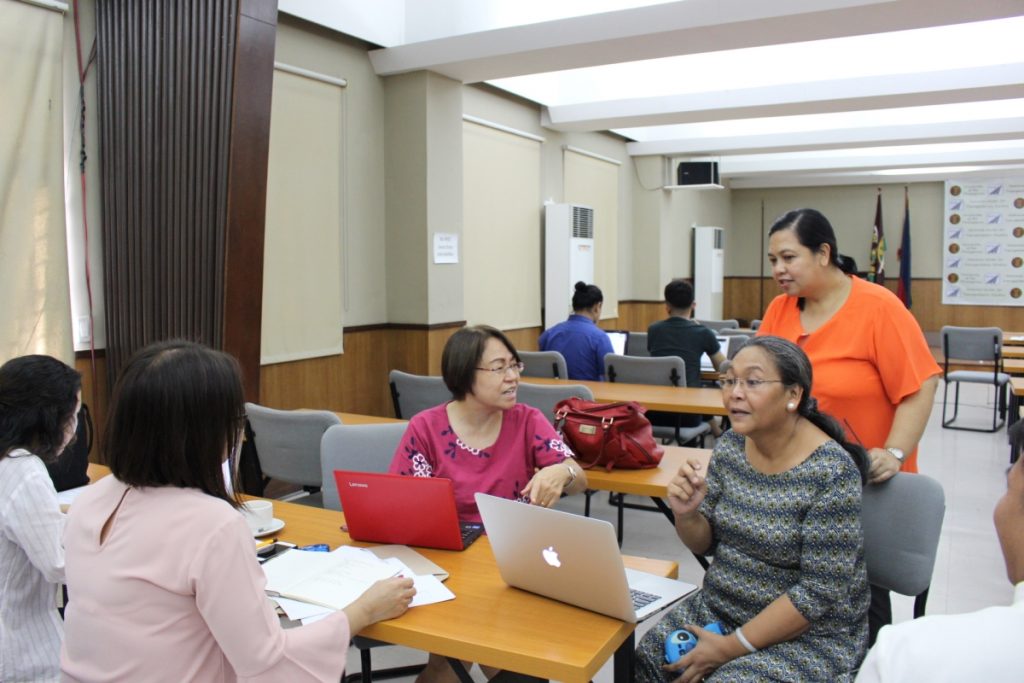
The writeshop also looked into Module 6 which covers Disaster Risk Reduction Management (DRRM) and Basic Life Saving (BLS). Since there is consensus that the basis of the module should be the National Disaster Risk Reduction and Management Council (NDRRMC) plan, the learning objectives, its phrasing, and the module’s content must be able to capture the framework of the disaster management process in the Philippines. The learning objectives were further guided by the community engagement activities that the students should be involved in, including practical assessments of the Basic Live Saving Module, and the preparation of the GoBag. The team also agreed with what Dir. Macapinlac and Prof. Torrecampo said that rather than seeking external resource speakers, finding experts within the UP Diliman community would be the better option as the university is an expert in this matter.
Minor changes were made in Module 7 Environmental Protection. The addition of a learning objective, which aimed to make students understand the occurrences of environmental degradation and disasters, was deemed necessary. Finally, Module 8 Drug Education was improved by participants as they revised the learning outcomes. The UP College of Education Asian Training Center for Preventive Drug Education (ATCPDE) and University Health Service were identified as possible partners for resource persons. A portion of the lesson was to be given as an assigned homework in order to maximize the lecture periods for the drug module discussions.
To encourage the spirit of academic excellence, Dir. Macapinlac urged the participants and writers of the syllabi to utilize the available resources in the libraries of the University. She also reminded everyone to cite online references. She even encouraged that the common module writers suggest references that are essential for the class discussions. She, however, emphasized that class instructors are given the freedom to add sources which they believe would enhance the overall learning experience of the students. The seminar-workshop for the OBEdization of the NSTP common module proved to be a successful event which further refined and enhanced the program’s goals.
by Cole Asuncion and Jillian Santos

